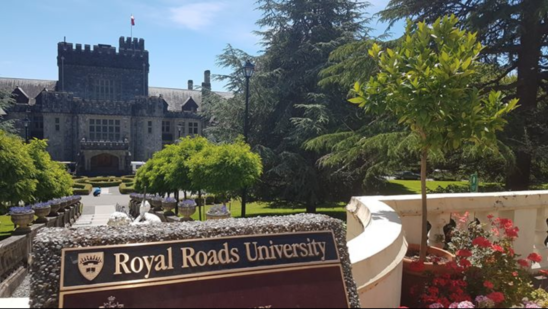The MALAT program
Royal Roads University runs an excellent Master of Arts in Learning and Technology (MALAT). This program is the first master of arts degree in Canada to go textbook-free. Students can access all of the course materials through open educational resources, e-books, journal articles and other free digital resources. These types of courses are known as “Zero Textbook Cost (ZTC)” and aim to improve access to education and enhance student outcomes.
I always enjoy participating as a guest speaker on this program, because most of the students are actively engaged in online learning and teaching and the program makes them reflect on the deeper issues involved in using technology for teaching.
What will be the impact of Covid-19 on online learning?
One of the MALAT instructors, Irwin de Vries, said that his students had three questions they wanted to discuss with me:
- Can higher education institutions return to how things were before Covid-19? If not, how can higher education institutions set themselves up for success?
- Is face-to-face teaching inherently superior to online learning? Has Covid-19 changed this perception?
- What new technologies are most likely to impact on online learning over the next five years – and why?
So on June 1, I structured the session around these three questions, starting each question with a short (10 minute) presentation of what is known – and more importantly, what is NOT known – about each of these topics, followed by 5-10 minutes of discussion or questions and answers with the students about each question. There were approximately 16 students in the session.
A wide range of issues came up in the discussion, including
- the appropriateness of online learning for indigenous education
- the likely impact of Covid-19 on faculty development and training
- identifying the unique affordances of face-to-face teaching
- models for media selection
- the likely role of big tech companies in using AI to by-pass higher education systems.
The recording of the webinar
The session was recorded and Irwin and the students have made the recording openly available from here: https://www.youtube.com/watch?v=HBHIzoxPH68&t=3s.
The whole webinar lasts just over 52 minutes. Please note that there is a technical issue with the sound between 16’45” and 19’10” – just scroll through this period.
As always I was impressed by the questions and contributions of the students, and I am grateful that Irwin and the students are willing to share this with those who are interested.










 Dr. Tony Bates is the author of eleven books in the field of online learning and distance education. He has provided consulting services specializing in training in the planning and management of online learning and distance education, working with over 40 organizations in 25 countries. Tony is a Research Associate with Contact North | Contact Nord, Ontario’s Distance Education & Training Network.
Dr. Tony Bates is the author of eleven books in the field of online learning and distance education. He has provided consulting services specializing in training in the planning and management of online learning and distance education, working with over 40 organizations in 25 countries. Tony is a Research Associate with Contact North | Contact Nord, Ontario’s Distance Education & Training Network.


Hi Tony, I was invited by Dr. Elizabeth Childs (MALAT Program Director at RRU) to comment on the recording of the session where you spoke to MALAT students and faculty. Thank you for your frank comments and the assessment of the situation within which we all find ourselves.
I specifically wanted to respond to the comment that you made at one point in the discussion that leadership within the online (fully online and hybrid) space seems to be focussed on the west coast of Canada. I’d like to apprise you of a few programs that have been experiencing success for extended periods of time in central Canada. Specifically, the BA in Educational Studies and Digital Technology (formerly the BA in Adult Education and Digital Technology) at OntarioTechU, which has been in existence since 2013. The BA in ESDT programs (https://education.ontariotechu.ca/undergraduate/index.php) consists of the BA with two specializations, Adult Education and Early Childhood Studies, a 6-course diploma in Designing Adult Education for the Digital Age, and a soon to be added 6 course BA Minor, which will be available to students across the university. The program is fully (utilizing a mix of synchronous and asynchronous technologies) online and is built around the Fully Online Learning Community (FOLC) model (see https://eilab.ca/fully-online-learning-community/) utilizing Problem Based Learning in socio-constructivist collaborative learning contexts. Much of the BA’s pedigree is shared with the MED/MA in Education and Digital Technology program, which are again, fully online high-quality graduate programs. We hope to add an EDD to the listing in the next year or two. The FED at OntarioTechU has been working closely with Elizabeth and George Veletianos at RRU for many years to provide access to high-quality educational opportunities focussed on the use of digital technologies to all. We have begun to accumulate a fair amount of research around our work. Much of this work can be accessed at https://www.researchgate.net/profile/Roland_Van_Oostveen/research
There is another set of fine, mostly hybrid, programs focussed on digital technologies at Concordia University, and due to the addition of Nadia Naffi (see https://www.linkedin.com/in/nadianaffi/) to the faculty, a graduate of the Concordia PhD program, there are additional opportunities beginning to appear at l’Université Laval.
Thanks, Roland – duly noted!